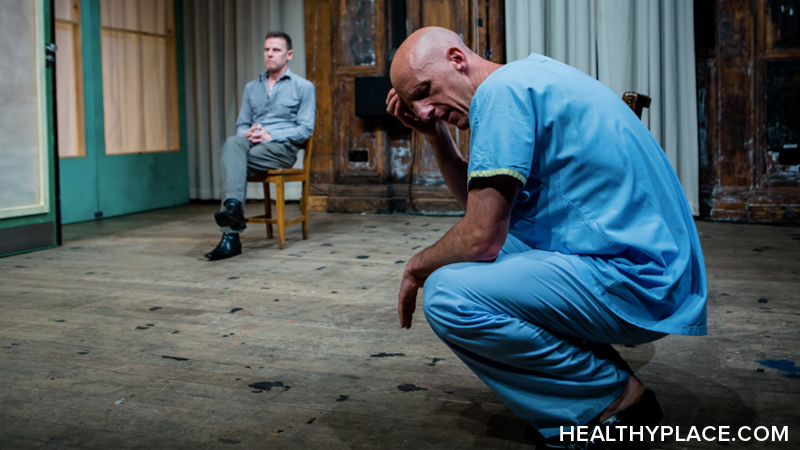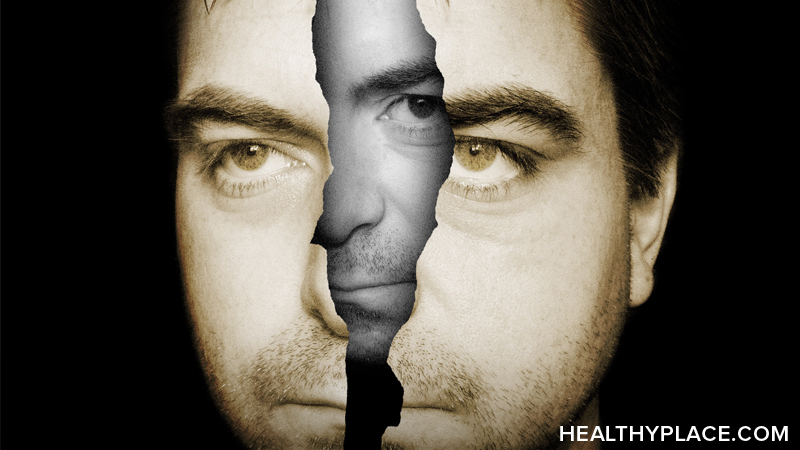
Melancholia, a type of depression, is what I struggle with. If I didn't take antidepressants, I'd be depressed most of the time. Read more.
Many manic depressives long for the hypomanic states, and I would welcome them myself if it weren't for the fact that they are usually followed by depression.
Depression is a more familiar state of mind to most people. Many experience it, and almost everyone has known someone to experience depression. Depression strikes about one-quarter of the world's women and one-eighth of the world's men at some time in their lives; at any given time five percent of the population is experiencing major depression. Depression is the most common mental illness.
However, in its extreme, depression can take on forms that are much less familiar and can even be life-threatening.
Depression is the symptom that I tend to have the most trouble with. Mania is more damaging when it happens, but it is rare for me. Depression is all too common. If I did not take antidepressants regularly, I would be depressed most of the time - that was my experience for most of my life before I got diagnosed.
In its milder forms, depression is characterized by sadness and a loss of interest in the things that make life pleasant. Commonly, one feels tired and unambitious. One is often bored and at the same time unable to think of anything interesting to do. Time passes excruciatingly slowly.
Sleep disturbances are common in depression too. Most commonly, I sleep excessively, sometimes twenty hours a day and at times round the clock, but there have been times when I had insomnia as well. It's not like when I'm manic - I get exhausted and wish desperately to just get some sleep, but somehow it evades me.
At first, the reason I sleep so much when depressed is not because I am tired. It is because consciousness is too painful to face. I feel that life would be easier to bear if I were asleep most of the time and so I force myself into unconsciousness.
Eventually, this becomes a cycle that is difficult to break. It seems that sleeping less is stimulating to manic depressives while sleeping excessively is depressing. While sleeping excessively, my mood gets lower-and-lower and I sleep more-and-more. After a while, even during the few hours I spend awake, I feel desperately tired.
The best thing to do would be to spend more time awake. If one is depressed, it would be best to sleep very little. But then there's the problem of conscious life being unbearable and also finding something to occupy oneself during the interminable hours that pass each day.
(Quite a few psychologists and psychiatrists have also told me that what I really need to do when I am depressed is get vigorous exercise, which is just about the last thing I feel like doing. One psychiatrist's response to my protest was "do it anyway". I can say that exercise is the best natural medicine for depression, but it may well be the hardest one to take.)
Sleep is a good indicator for mental health practitioners to study in a patient because it can be measured objectively. You just ask the patient how much they've been sleeping and when.
While you can certainly ask someone how they're feeling, some patients may be either unable to express their feelings eloquently or may be in a state of denial or delusion so that what they say is not truthful. But if your patient says he's sleeping twenty hours a day (or not at all), it is certain that something is wrong.
(My wife read the above and asked me what she was supposed to think about the times when I sleep twenty hours at a stretch. Sometimes I do that and claim that I'm feeling just fine. As I said, my sleeping patterns are very disturbed, even when my mood and my thoughts are otherwise normal. I have consulted a sleep specialist about this and had a couple of sleep studies done in a hospital where I spent the night hooked up to an electroencephalograph and electrocardiograph and all manner of other detectors. The sleep specialist diagnosed me with obstructive sleep apnea and prescribed a Continuous Positive Air Pressure mask to wear when I sleep. It helped, but did not make me sleep as other people do. The apnea has improved since I lost a lot of weight recently, but I still keep very irregular hours.)
When depression becomes more severe, one becomes unable to feel anything at all. There is just an empty flatness. One feels like one has no personality whatsoever. During times I have been very depressed, I would watch movies a lot so I could pretend I was the characters in them, and in that way feel for a brief time that I had a personality - that I had any feelings at all.
One of the unfortunate consequences of depression is that it makes it difficult to maintain human relationships. Others find the sufferer boring, uninteresting or even frustrating to be around. The depressed person finds it difficult to do anything to help themselves, and this can anger those who try at first to help them, only to give up.
While depression initially can cause a sufferer to feel alone, often its effects on those around him can result in his actually being alone. This leads to another vicious cycle as the loneliness makes the depression worse.
When I started graduate school I was in a healthy state of mind at first, but what drove me over the edge was all the time I had to spend alone studying. It wasn't the difficulty of the work - it was the isolation. At first, my friends still wanted to spend time with me, but I had to tell them I didn't have time because I had so much work to do. Eventually, my friends gave up and stopped calling, and that's when I got depressed. That could happen to anyone, but in my case, it led to several weeks of acute anxiety that eventually stimulated a severe manic episode.
Perhaps you're familiar with The Doors' song People are Strange which neatly summarizes my experience with depression:
People are strange
When you're a stranger,
Faces look ugly
When you're alone,
Women seem wicked
When you're unwanted,
Streets are uneven
When you're down.
In the deepest parts of depression, the isolation becomes complete. Even when someone makes the effort to reach out, you just cannot respond even to let them in. Most people don't make the effort, in fact, they avoid you. It is common for strangers to cross the street to avoid coming close to a depressed person.
Depression may lead to thoughts of suicide or obsessive thoughts of death in general. I have known depressed people to tell me in all seriousness that I would be better off if they were gone. There can be suicide attempts. Sometimes the attempts are successful.
One in five untreated manic depressives ends their lives at their own hands. There is much better hope for those who seek treatment, but unfortunately, most manic depressives are never treated - it is estimated that only one-third of those who are depressed ever get treatment. In all too many cases, the diagnosis of mental illness is made post-mortem based on the memories of grieving friends and relatives.
If you come across a depressed person as you go about your day, one of the kindest things you can do for them is to walk right up, look them straight in the eye, and just say hello. One of the worst parts of being depressed is the unwillingness that others have to even acknowledge that I'm a member of the human race.
On the other hand, a manic-depressive friend who reviewed my drafts had this to say:
When I am depressed I don't want the company of strangers, and often not even the company of many friends. I wouldn't go as far as to say I "like" being alone, but the obligation to relate to another person in some way is loathsome. I also become more irritable sometimes and find the usual ritual pleasantries unbearable. I only want interaction with people with whom I can really connect, and for the most part I don't feel like anyone can connect with me at that point. I begin to feel like some subspecies of humankind and as such I feel repulsive and repulsed. I feel like people around me can literally see my depression as if it were some grotesque wart on my face. I just want to hide and drop into the shadows. For some reason, I find it a problem that people seem to want to talk to me wherever I go. I must give out some kind of vibe that I am approachable. When depressed my low profile and head-hanging demeanor is really meant to discourage people from approaching me.
Thus it is important to respect each individual, for the depressed as for everyone else.
next: Effectiveness of Antidepressants










 I devoted a great deal of time to making telescopes when I was a teenager; in fact, I once intended to devote my life to astronomy and building large observatory instruments. When I started college, I majored in astronomy at CalTech, and some of the happiest times in my life came when I assisted CalTech professor, Jeremy Mould, in observing with the 200 inch and 60 inch telescopes at Palomar Mountain.
I devoted a great deal of time to making telescopes when I was a teenager; in fact, I once intended to devote my life to astronomy and building large observatory instruments. When I started college, I majored in astronomy at CalTech, and some of the happiest times in my life came when I assisted CalTech professor, Jeremy Mould, in observing with the 200 inch and 60 inch telescopes at Palomar Mountain.